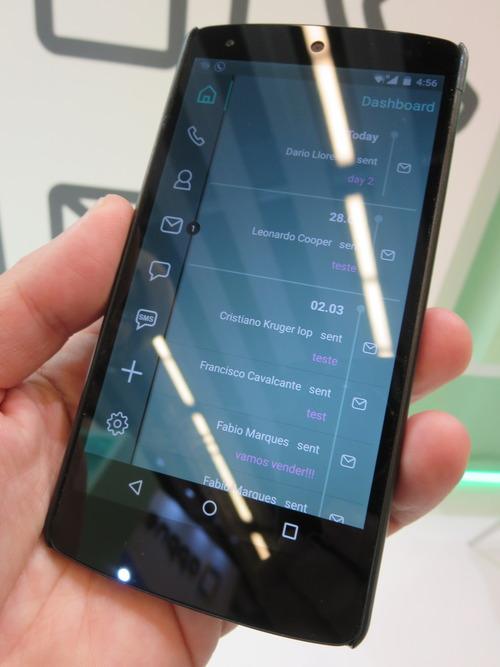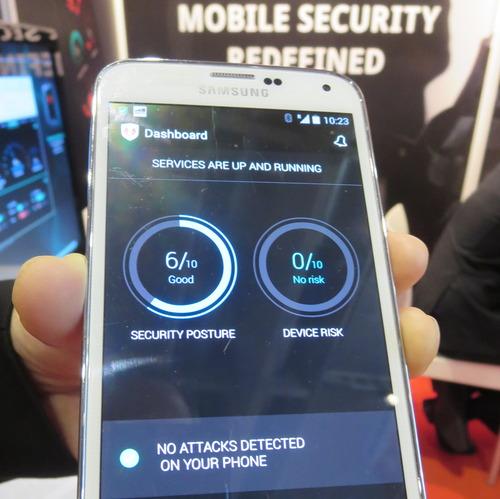
BARCELONA—It’s been a rough few years for having confidence in your communication, thanks to all the things we’ve learned about government surveillance and previously-unknown vulnerabilities in our software.
That
also means there’s a business opportunity for companies to try to solve
those problems. Here at Mobile World Congress, I’ve seen three separate
phones that come armored with layers of encryption to protect your
content and your conversations.
One of them has already found surprising success: the Blackphone, which maker Silent Circle said Monday had booked $750 million in sales since its debut at last year’s MWC.
This year, Silent Circle unveiled a successor to that device, the $649
Blackphone 2, as well as a Blackphone+ tablet that can be used as a
phone.
All
those devices run a customized version of Android that offers encrypted
Web browsing and online storage, plus the ability to restrict anyone
app’s access to your data. They also ship with encrypted calling and
texting applications from the Geneva and National Harbor, Md.-based
company.
I’ve tried those apps,
and they’re vastly easier to use than most encryption software. They
also come from a team with serious cryptography credentials: Phil
Zimmermann developed Pretty Good Privacy and then spent half a decade getting hounded by the Feds for it, while Jon Callas wrote Apple’s disk-encryption software before joining the company.
But like many other secure-communications apps, Silent Circle’s require the same software on the other end.
That
means if you buy a Blackphone 2 and try to call or text somebody using
the other two secure phones I saw here, your words will go over the air
in the clear unless the recipient first installs Silent Circle’s apps.

And on one of those two phones, that may not even be an option. The GranitePhone, an Android-based device being developed by the Sao Paolo, Brazil, firm Sikur,
offers encrypted calls and texts to other owners of the same device.
But like the Blackphone, it won’t include access to the standard Google
Play Store, which will presumably preclude installing Silent Circle’s
apps when this phone ships for $799 or so sometime this summer.
Then there’s Kaymera.
This Herzlyia, Israel-based firm takes standard Android phones—today,
the Samsung Galaxy S 5 and LG’s Nexus 5—and wrapping them in its own
encryption and security software. They include some thoughtful features:
You can set a “panic PIN” that you enter if forced to unlock the phone,
and which then alerts a designated contact.

0 comments:
Post a Comment